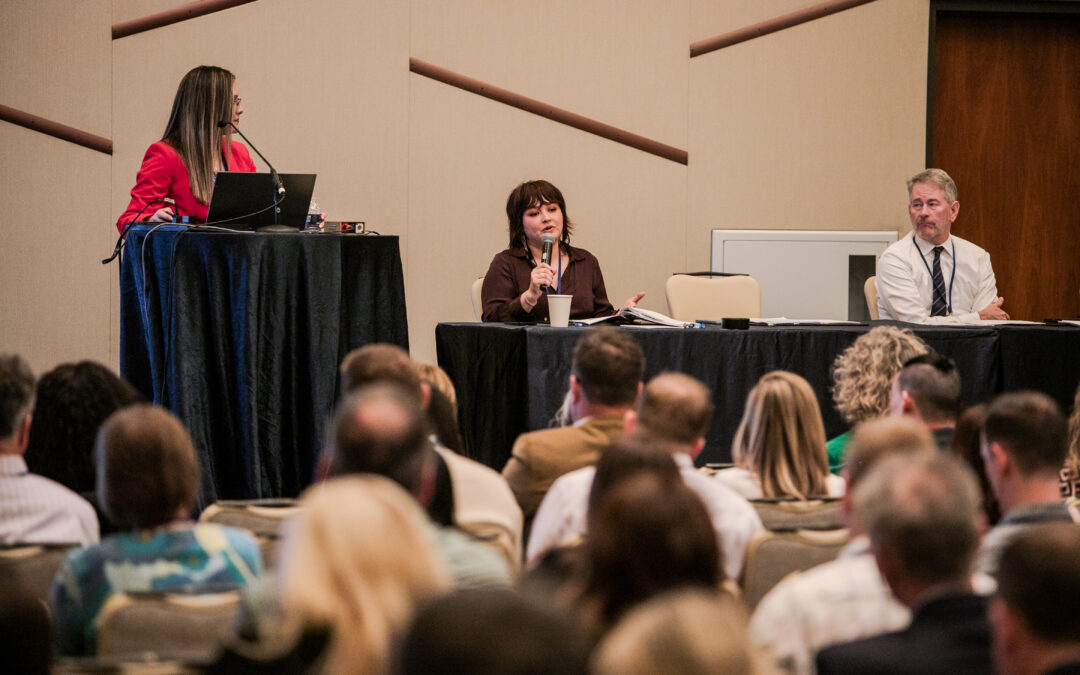Community association legal experts and insurance professionals shared their insights and solutions on several topics changing the way community associations across the country operate at CAI’s Community Association Law Seminar in Las Vegas in February. Skyrocketing insurance premiums were a major focus.
Over the past year, most of the country has felt the effects of a hardened insurance market. Community associations are seeing fewer insurance options, experiencing more scrutiny regarding what insurance companies will write, and getting forced to find coverage more often in the surplus lines market.
Due to the drastic change in insurance underwriting guidelines, many community associations require attention, education, efficient marketing, and transparency from their insurance professionals. Not all insurance professionals are willing, able, or poised in both common interest development insurance and the hard market and surplus lines policies.
As community associations look at their current insurance premiums and consider bids for renewal, Charlotte Allen, CIRMS, Brendan Bunn, a CCAL fellow, and Jessica Knutsen, CIRMS, suggest that boards take the following steps.
1. Understand the roles and services of your insurance partners. An insurance agent represents a single insurance company. An insurance broker is an intermediary who is licensed to sell, solicit, and negotiate insurance on behalf of an association and who represents multiple insurance companies. The insurance company, carrier, or insurer is the risk bearer and the party that underwrites the policy.
“Insurance brokers are matchmakers,” says Knutsen, a partner and vice president leading the community associations division at USI Insurance Services in Falls Church, Va. “It’s a broker’s job to match a community association risk profile with an insurance company that has the business appetite to write insurance for them and meet with the board and manager to explain details about the coverage”
Brokers who hold CAI’s Community Insurance and Risk Management Specialist (CIRMS) designation are the most qualified insurance professionals, and they’ll be able to achieve the most favorable outcomes for an association.
2. Understand how many carriers are feasible options, and ask for all details. Very few insurance carriers offer products for community associations. Each has their own underwriting guidelines.
3. Be aware of the required underwriting information. Most insurance companies will require at least three years of loss performance history from an association.
4. Avoid market saturation. Insurance carriers will only release one quote to the first insurance broker who makes a complete submission. Instead of working through multiple brokers, communities should work with one who can gather accurate data for multiple underwriters.
“If you work with one broker who can approach the open market, you won’t saturate it and run into blocked carriers,” says Allen, director of education and industry partnerships with Socher Insurance Agency in Pleasanton, Calif.
5. Build rapport with your insurance carrier and broker. Having a long-term relationship with a carrier can influence the decision to renew or non-renew an insurance policy.
6. Determine if you are bidding the insurance broker services or the insurance carrier coverage. They are two different processes. Communities do not need to release underwriting information and fill out insurance applications to find a good broker. (Learn how to evaluate an insurance broker.)
“Due diligence is a crucial component of fulfilling one’s fiduciary duty,” says Bunn, a shareholder in Chadwick, Washington, Moriarty, Elmore & Bunn in Fairfax, Va., and president of the CCAL Board of Governors. “Using experts, such as those with the CIRMS designation, is an established way for boards to insulate themselves from a breach of fiduciary duty claim.”
7. Start your bidding process at least three months prior to your insurance expiration date. Communities need time to interview brokers, gather underwriting information, schedule pre-inspections, investigate mitigation actions, and more as they consider their insurance premiums.
“Waiting until the last minute to renew coverage or explore new options is a classic sign that the association is disorganized or scrambling,” says Bunn. “It is only under the rarest circumstances that selecting insurance coverage should be an emergent decision.”
Among other factors, increasing reinsurance rates, an increasing number of billion dollar natural disasters, and rising property values are forcing some insurance companies to exit the market while others are tightening their underwriting guidelines. Allen, Bunn, and Knutsen highly encourage board members and community managers to become familiar with their association’s construction, occupancy, protection, and exposure. Underwriters are scrutinizing these factors, and associations that understand them may be able to anticipate any potential cancellations and budget for insurance premium increases.
>>Learn more about community association insurance and risk management.
Photo caption: L-R: Jessica Knutsen, Charlotte Allen, and Brendan Bunn discuss community association insurance premiums during an education session at CAI’s Community Association Law Seminar in Las Vegas in February. Photo by Brian Adams.


